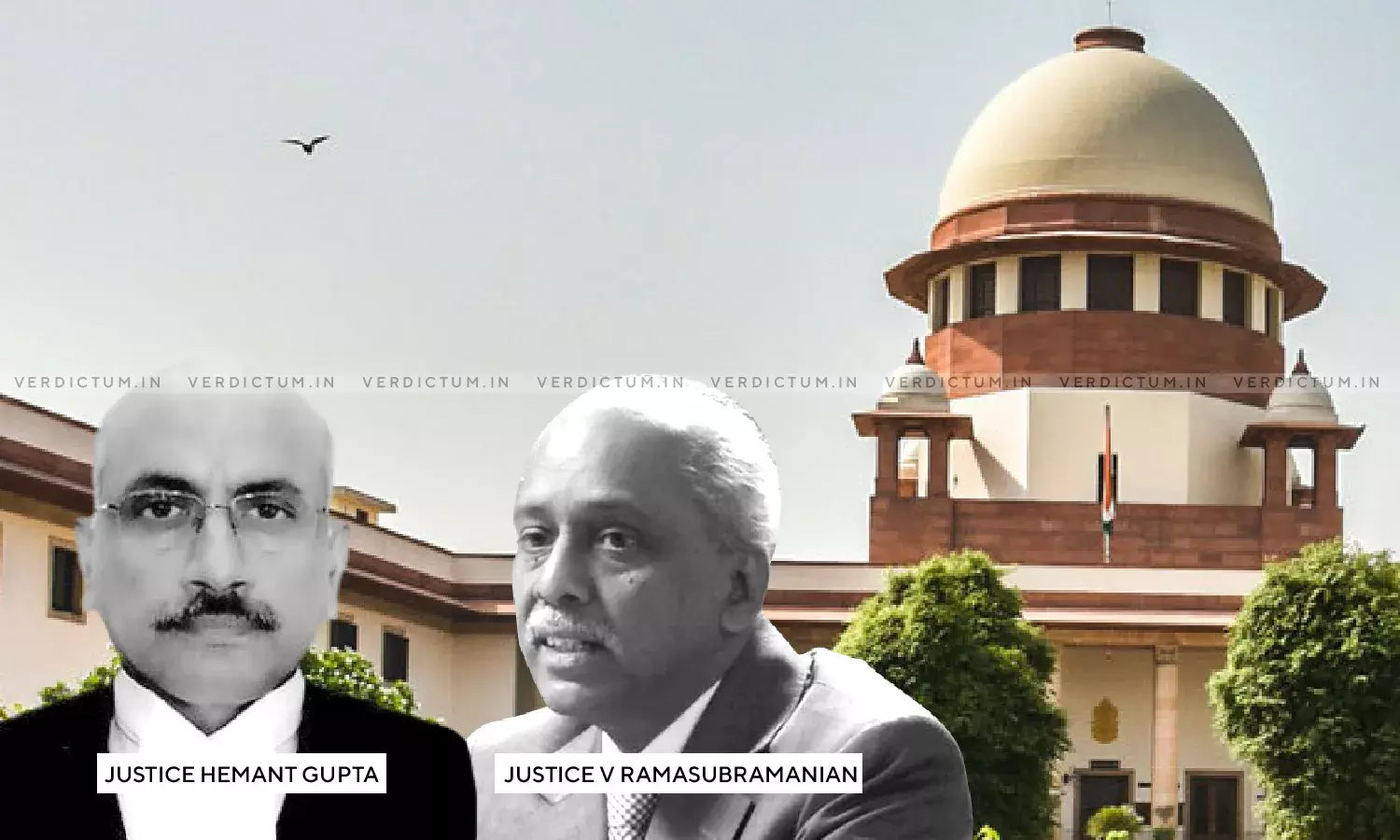Courts Cannot Grant Additional Period For Land Acquisition If Statute Does Not Contemplate For Same - Supreme Court

A two-judge Bench of Justice Hemant Gupta and Justice V. Ramasubramanian while setting aside an order of Bombay High Court has held that once the Act does not contemplate any further period for acquisition, the Court cannot grant an additional period for the acquisition of land.
The appeal was filed against an order of Bombay High Court which had held that the reservation of land in the Development Plan stood lapsed as no declaration under Section 126 of the Maharashtra Regional and Town Planning Act, 1966 was published. However, the Planning Authority was given one year time to acquire the land once reserved.
A Development Plan was published under Section 31(6) of the Land Acquisition Act, 1894. Though the Development Plan was finalized, the same was never implemented nor any action was taken for the acquisition of the land under the Land Acquisition Act, 1894. After the expiry of ten years, the appellants issued notice on 16.8.2016 under Section 127 of the Act so as to purchase the reserved land within one year of the date of the notice.
A writ petition before the High Court was filed to issue a writ of mandamus directing respondent that land of the appellant was released from the plan and reservation of a site for playground also lapsed and the site could be used for residential purposes. The High Court asserted the view and also observed that the land was not acquired within the period of ten years and within an additional period of one year after.
Relying upon Bangalore Medical Trust v. B.S. Muddappa & Ors. the Apex Court held that an additional period of one year is not contemplated by the statute.
Supreme Court further held that the authorities have been given a duty to act as a cestui que trust (beneficiary of the trust) with respect to the public park and had thus directed to acquire land under the Right to Fair Compensation and Transparency in Land Acquisition, Rehabilitation and Resettlement Act, the land reserved for the public park cannot be permitted to be converted for other public purposes.
Additionally, the Court noted, "...Therefore, once the Act not contemplate any further period for acquisition, the Court cannot grant additional period for acquisition of land. The land was reserved for a public purpose way back in 2002. By such reservation, the land owner could not use the land for any other purpose for ten years. After the expiry of ten years, the land owner had served a notice calling upon the respondents to acquire the land but still the land was not acquired. The land owner cannot be deprived of the use of the land for years together. Once an embargo has been put on a land owner not to use the land in a particular manner, the said restriction cannot be kept open-ended for indefinite period. The Statute has provided a period of ten years to acquire the land under Section 126 of the Act. Additional one year is granted to the land owner to serve a notice for acquisition prior to the amendment by Maharashtra Act No. 42 of 2015. Such time line is sacrosanct and has to be adhered to by the State or by the Authorities under the State."
"The State or its functionaries cannot be directed to acquire the land as the acquisition is on its satisfaction that the land is required for a public purpose. If the State was inactive for long number of years, the Courts would not issue direction for acquisition of land, which is exercise of power of the State to invoke its rights of eminent domain," the Bench opined.
Accordingly, the Court allowed the appeal.
Click here to read/download the Judgment

